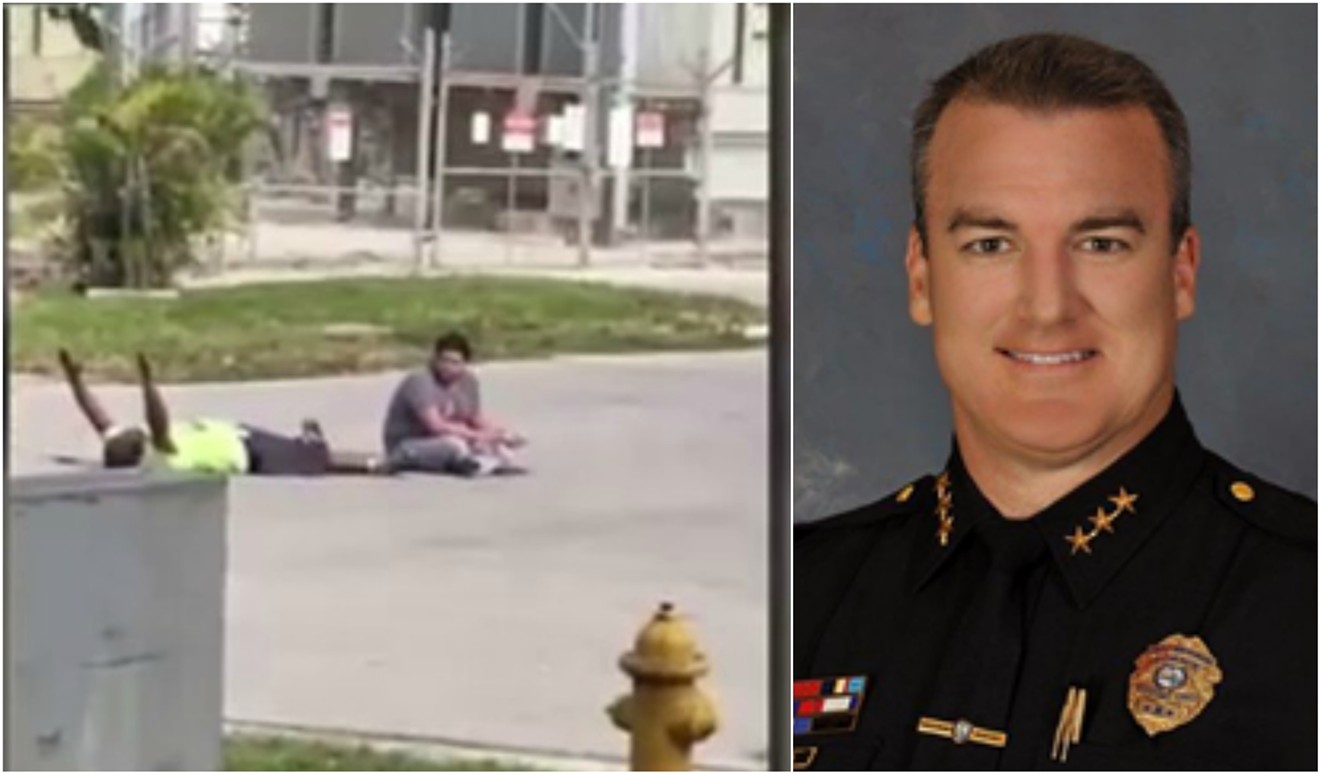But the decision to promote Juriga has raised eyebrows from many residents in the heavily Haitian community. Despite the fact that the police force remains overwhelmingly white, the interim chief filed an EEOC complaint as recently as two years ago claiming he was being discriminated against as an "anglo."
"I have been marginalized in the department, where I have worked for 21 years," Juriga wrote in June 2015. "Until recently, no 'anglo' was a department head. A white police chief and white assistant chief were forced out in 2010. All three chiefs since have been black."
In his complaint, Juriga also claimed he heard then-City Manager Aleem Ghany call him a "redneck" after the two spoke on the phone one day in November 2014. (Ghany supposedly forgot to hang up before making the comment.)
Months after filing the complaint, Juriga apparently settled with the city for $24,990, an amount just below the $25,000 minimum that would have forced the city council to vote on the payment in a public meeting. The settlement and the EEOC complaint were first reported by local blogger Stephanie Kienzle of Voters Opinion.
Juriga didn't respond to a phone message from New Times regarding the complaint.
Juriga's promotion to interim police chief comes after years of internal dysfunction that came to a head following the shooting of behavioral therapist Charles Kinsey last summer. That case has been a national embarrassment for the city; prosecutors later charged the cop who shot Kinsey with four felonies, saying he ignored radio warnings from other officers that neither the therapist nor the patient he was trying to help were armed.
The shooting exposed a department in chaotic free fall: Veteran cops who worked the shooting were admonished for muddying up the crime scene, and infighting was so bad that Eugene told investigators he wasn't sure his officers would back one another up during a shooting. After Eugene was fired, Juria moved to fire a commander who insists the interim chief was acting on a long-standing grudge.
Juriga is now one of 23 applicants vying to lead the department. But given his history — and lingering questions about his involvement in the Kinsey investigation — some residents say the city would be wise to choose an external candidate.
"If he gets appointed, half of the city will be in an uproar because he's part of the problem," says resident Jim Garrett, a former city
It's unclear exactly when the city will choose a new chief, but in June, Eugene filed a lawsuit seeking to get his job back. That case is still pending in federal court.












